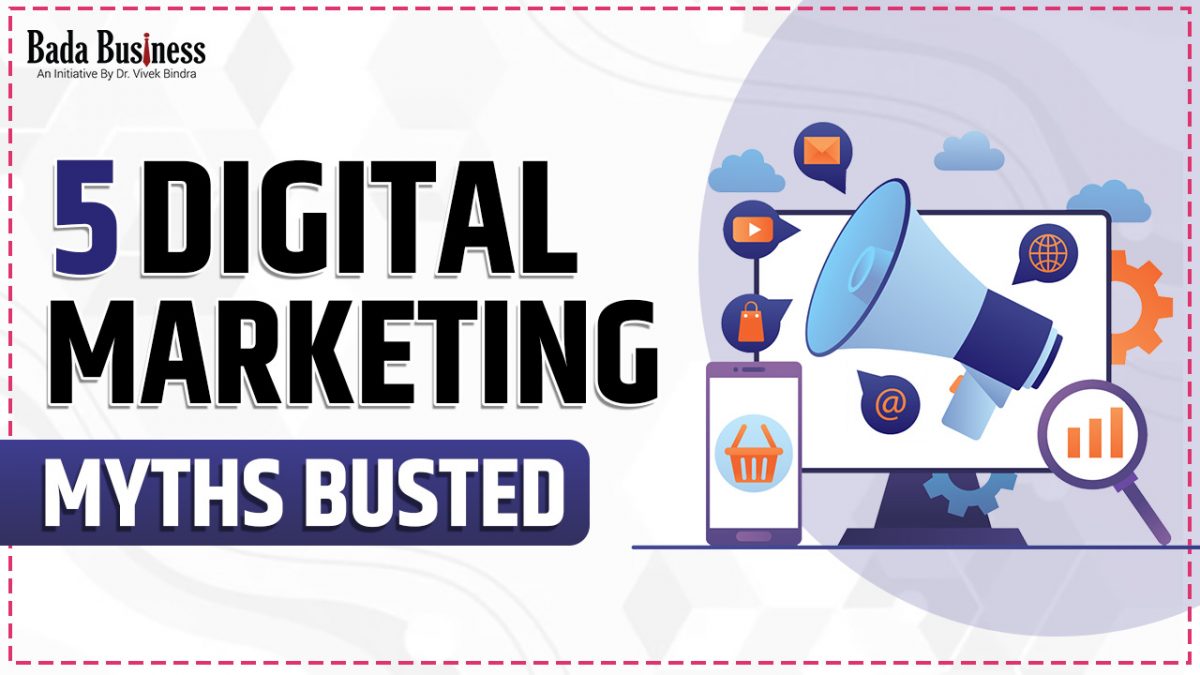Summary: Do you believe digital marketing is like ‘one size fits all?’ Welcome to the world of reality. In this article, we are going to debunk some myths that will have your jaws dropped.
Well, thank us later, but it is in our utmost interest to make people aware of the facts and myths that surround people in India- especially about digital marketing. Digital transformation is a vast concept. It is much more than the technology buzzword.
Many people think that the concept of digital marketing involves lots of technical information, which is again a myth. With so much information regarding this great concept, it can be challenging for a marketer to distinguish between what to believe, let alone develop a smart strategy.
What`s more damaging is that many believe the infamous “one-size-fits-all” approach. If you tried this approach, you are doing a disservice to your clients, your customers, and your startup business. There are many online business courses for entrepreneurs to make the most of digital marketing for their business.
According to a recent survey by KPMG, “75% of the respondents believe that digital transformation can create a more seamless customer experience.” But because every individual is unique and no experience is the same, a digital marketing strategy must be based on agility and flexibility.
This simply implies that anyone with a laptop and an internet connection can`t claim to be an expert. One has to understand every aspect of this concept that can be leveraged by large as well as small startup businesses for marketing purposes.
Below, we explore some of the most common myths and try to bust them related to the biggest digital marketing myths we have heard over the years.
Myth #1: Digital Marketing = Technical Information
Yes. Digital marketing does involve the use of computers, smartphones, tablets, and laptops. But you don`t need to have in-depth technical information or computer languages like Java, Visual Basic, or Linux. Digital marketing is all about making full use of digital devices and platforms to reach out to your target audience through social media.
Myth #2: Digital Marketing is only for Big Businesses
One of the most common myths that small business owners have is that digital marketing is only for big brands and businesses. To tell you the truth, digital marketing is as much beneficial for small startups as it is for large businesses.
You do not need a call center to engage or salesman for door-to-door services. You can sell your products directly to your customers globally without even having to establish a physical shop. By making your social media profile on popular platforms you can fetch valuable insights and data regarding the buying behavior of your customers through their demographic details.
Myth #3: Word-of-mouth marketing is better than Digital Marketing
Word-of-mouth marketing is great, but integrating it with digital marketing can maximize its effects. Today, every customer checks out reviews of a particular brand before making a business transaction. If your customers are happy with your products and services, you can create testimonials and share them with the pool of your potential customers with the power of digital marketing.
You can also run social media campaigns to achieve your business goals. You can encourage your customers to visit the retail show and share their experiences with a customized hashtag.
Myth #4: Posting needs to be Done Several Times a day on Social Media
Many social media guidelines are focused on the number of posts that should go on the platforms every day. But does it guarantee its success?
The ROI of social media is constantly in question. Out of all the other digital marketing channels, it is often the most misunderstood. But many few people know that the value of social media is not measured in leads but through customer experience. More and more brands are using their social media handle as the extension of their customer service department. Both negative and positive comments from the customers can be seen online on social media platforms and review sites.
Hence, it is not just about how many posts you publish each day. But how you engage and inspire your consumers through online customer service. Ultimately, digital marketing has more power than you can imagine. You could be missing out on some great returns on investment, better brand engagement, and low-cost campaigns. You can also take an online course for entrepreneurs to learn more about digital marketing. You can also take the LFP Bada Business.


